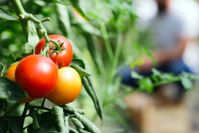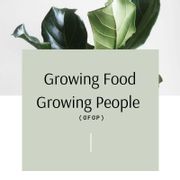3 Ways Growing Your Own Food Helps the Environment

Starting a garden with organic produce is a productive hobby. It gives you access to healthy food, provides a sense of accomplishment, and can help you save money. However, there’s another aspect of home gardening that often gets overlooked—its environmental benefits. Below, a few of them are listed in more detail.
How Growing Organic Produce at Home Helps the Environment
1. Cleans the Air
Plants of all kinds produce oxygen and absorb carbon dioxide. When you start a vegetable garden, you’re adding to the plant life around your community. This improves the quality of air and reduces the impact of carbon emissions.
2. Uses Fewer Chemicals
 Many of the produce and food products you find in stores are grown using pesticides, fertilizers, and preservatives. When you grow food at home, you control what goes into it and lower the use of chemicals that contribute to ground, air, and water pollution.
Many of the produce and food products you find in stores are grown using pesticides, fertilizers, and preservatives. When you grow food at home, you control what goes into it and lower the use of chemicals that contribute to ground, air, and water pollution.
3. Reduces Carbon Footprint
When you purchase food from the store, you expend energy by traveling there. You also need to account for the transportation of the food to the store, and the power that the store and manufacturer require to run. By growing organic produce, you cut out many of those steps and reduce carbon emissions related to your food dramatically.
If you’re interested in the benefits of organic produce, even if you can’t grow all of it on your own, Growing Food Growing People can help. The community food aggregator serves families throughout the St. Louis, MO, area, supporting nutrition and healthy living by donating fresh fruits and vegetables to those who can’t access it. Visit the non-profit farm’s website to see a full list of services and learn how you can access fresh produce or help support the cause. To speak with a member of the team directly, call (314) 518-2048.
About the Business
Have a question? Ask the experts!
Send your question

